CATEGORIES
فئات
أحدث القصص

The Beginnings of the Bird Cage
Owner Billy Hutchinson led it through some difficult times.

Newark cut street homelessness in half in 2023 - can NYC follow suit?
In 2022, Newark Mayor Ras Baraka rolled out \"The Path Home\" to end chronic homelessness in New Jersey's biggest city.

In Praise of Poetry
APRIL IS National Poetry Month, and poetry lovers in Texas have an extra reason to celebrate.
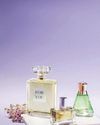
Making Scents
SALES OF PERFUME and fragrance products shot up 32% in 2022 and have kept rising.
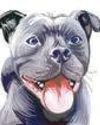
GLAD TO HEAR IT
3 STORIES TO Make Your Day

Just a Snore or Something More?
Sleep apnea is on the rise, and it can be dangerous. How to tell if you or your sleeping partner has it.

Filling the (Kitchen) Cabinet
A husband and wife formalize their division of labor
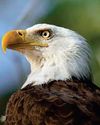
The Americas
Narrated by Tom Hanks

THE CRAZIEST HOTEL STAY EVER
It all started when no one was at the front desk to greet them. So the friends stepped up, and soon they were in charge.
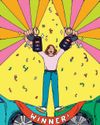
Some People Have All the Luck
Once in a while, the toast does fall jelly-side up
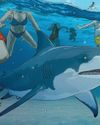
OUT OF THE WATER!
A HORRIFIC SHARK ATTACK NEARLY KILLS A SWIMMER... 90 MINUTES LATER, IT HAPPENS AGAIN

"I CAN'T STOP!"
A sports fan gets sucked into online betting. It nearly wrecks his family.
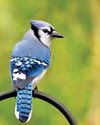
The LADIES' MAN IN MY BACKYARD
The soap opera at the bird feeder became a lesson in life

Rx Mistakes Pharmacists Want You to Quit Making
For starters, take your pills out of the medicine cabinet

WE FOUND A FIX!
25 creative cures for everyday dilemmas, from cleaning to cooking to tech and more

A Piggyback Ride from a Stranger
After an elderly woman broke her leg on a hill, a hiker spent hours carrying her down

The Best Guy I Know
When Uncle George calls, it's always worth picking up

Tea Time
1 POP THE kettle on: April 21 is National Tea Day. Actually, a dozen days throughout the year celebrate tea in its many forms (chai, iced, bubble, etc.), and on any given day, more than half of Americans have a cup. Together, we drink more than 85 billion servings each year, most of it Lipton. Bigelow is the next biggest brand name.
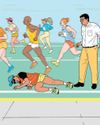
My Lucky Day
Six tales of good fortune sure to make you smile

My Dead Friend Zoe
Starring Sonequa Martin-Green

25 years ago, Steve Jobs changed the path of the PC forever
We're still living in the era ushered in at Macworld 2000, defying even Steve's expectations.

Apple lays out its plans for Fitness+ in 2025
Apple will bring new workouts and meditations to its fitness streaming service this year, including progressive strength training and pickleball.

Why the Apple Watch needs a reboot
Apple presents its smartwatch as a product that is still in its infancy. This may be true from the company's perspective, but the perception on the market is different.

How to set a dedicated iPhone for FaceTime calls on an Apple TV
Setting up an Apple TV as a dedicated calling workstation? Apple has you covered in tvOS 18.

Apple is forcing me to turn to Google because Siri won't do this one simple thing
Please, Apple-all I want to do is add time to a running timer.

Where can I find Apple Intelligence on my Mac?
Looking for Apple Intelligence features on your Mac? Here's how to get Apple's AI features, including ChatGPT and Image Playground, on your Mac.

RETAKE YOUR iPHONE!
NEVER BEFORE HAS A SINGLE MAJOR IOS RELEASE REQUIRED SO MUCH WORK FROM ITS USERS. HERE'S HOW TO GET IT ALL DONE.

PLUGABLE THUNDERBOLT DOCKING STATION WITH DISPLAYLINK (TBT-6950PD): ADD UP TO FOUR EXTERNAL DISPLAYS
The Plugable Thunderbolt Docking Station with DisplayLink (TBT-6950PD) is a full 11-port docking station that beats nearly all other Thunderbolt docks by boasting not just four Thunderbolt 4 ports (one upstream to the host computer) but two HDMI 2.0 ports as well.

It's 'safe' to wear Apple Watch bands, Apple assures in response to lawsuit
A class-action lawsuit in the U.S. states that Apple Watch bands have harmful chemicals.

TRY THESE 12 POWER TIPS FOR LONGER IPAD BATTERY LIFE
YOU CAN SIGNIFICANTLY IMPROVE THE BATTERY LIFE OF YOUR IPAD WITH OUR TIPS AND TRICKS.
